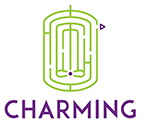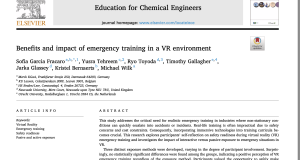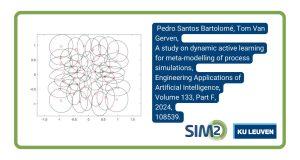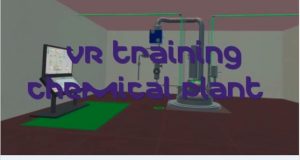[No spoilers beyond the first movie (first half of the first book)]
Some time ago I went to see the new Dune movie by Denis Villeneuve, an adaptation of the first half of the first book of a saga by Frank Herbert. The plot of the saga revolves around a messianic religious figure, the Kwisatz Haderach, and in the book, every chapter is preceded by a quote from fictional in-universe history books written after the events of the book, a view of how people will talk about these events once they have finished. These quotes do not naturally fit an audiovisual format, so they are not in the movie, but later I remembered one in the context of the CHARMING project (PSB, Leuven, 23/5/2022).
Muad’Dib learned rapidly because his first training was in how to learn. And the first lesson of all was the basic trust that he could learn. It is shocking to find how many people do not believe they can learn, and how many more believe learning to be difficult. Muad’Dib knew that every experience carries its lesson.
—from 'The Humanity of Muad'Dib"
by the Princess Irulan
When I first read it, "training in how to learn" seemed a strange concept. Now, within the CHARMING project, I have been shocked by the wealth of knowledge that exists in pedagogical science on better ways both to learn and to teach: learning is a process, just like training a muscle or healing a disease, so it seems logical that some techniques are more useful than others, and such research, obviously, falls within the field of pedagogy.

My surprise came because I never saw any of this research in practice during the 17 years I was a student. If the research says that active engagement with a topic is the optimal way to learn, you can be sure that my classes were spent sitting on a chair listening to a lecture and reading from a book. If plenty of evidence shows that it is best to present information through practical problems relevant to the student, you can be sure that I was never asked what the consequences in my life of Napoleon's invasion of Spain were, or what would happen if a river or mountain range crossed a different area, and even a simple thermodynamics assignment would normally involve compounds like cyclohexane or 1-butanol instead of water or oxygen. Although many teachers tried their best, the system itself seemed more designed to make learning difficult, and I certainly had no concept of teaching how to learn.
At the same time, the comparison with Muab'dib from Dune is unfair: he was the son of a Duke, and his mother was an expert psychologist. Even a comparison with just the standard guild member of that fictional universe, either navigator, doctor of the suk school, or bene gesserit, would remain unfair: they are a small and specialized group, with an education focused on a practical skill, and without a strong school/university/workplace divide. Their training would probably be close to that of the medieval guilds they were inspired by: young children trained for 5 to 9 years for a specific job. Our system wants to teach everything to everyone; of course it can't compete in quality with such specialist systems.
Making a comparison with historical stages of industry, Muab'dib's training could be seen as artisanship: a thing of luxury, available only for the wealthiest of society, like a pharaoh's throne. The guild's training system is, of course, the guild system: more efficient groups that manage to extend services from the wealthiest to a budding middle class, at a reduced quality.
Current education is mass manufacturing: similar to IKEA furniture, but, while lacking the finesse of previous systems, it has managed the feat of essentially eradicating illiteracy (it's no coincidence that so many hours were spent reading, writing, and listening to teachers read out loud). We are now living in the next step: a kind of "automation" of education through online lectures that are always available and problem databases that can automatically provide correct answers and guidance. Here, for practical fields such as pilots, chemical operators or lab assistants, we find educational simulations: replicas of traditional training in a virtual environment.
Educational games can go beyond even this: not just to replicate the old teaching in a new environment, but to also go back to the previous system. To have guild teaching for everyone, where you can have the mixture of practical and theoretical education that fosters real learning: start by making a simulator to replicate the physical parts of a chemical operator's training. Now that you have a virtual environment, you can show simulations, implement databases of your lectures and books to study concepts, give targeted exercises, explanations, and activities that keep the learner engaged and interested…
Once you have it for a chemical operator, why not use it to train chemical engineers? And then, why not expand it? Until we have games that cover full sections or even all of chemical engineering. New tools that will make classes engaging and applied, where teachers can focus on targeting the specific challenges each student faces while the bulk of the activity is automated. Maybe by learning in such games, we will also have the chance of learning how to learn, to avoid memorizing and repeating isolated concepts with passive stares, and restore active practice and contextual learning.
Perhaps one day it will go even further back, with AI that can teach each of us with the kind of personalized and expert care with which Aristotle taught Alexander the great, the kind of learning of which Muab'dib benefited in Dune. But, for now, we don't need to run, just to make sure that we are walking in the right direction.
I'll see you at the next movie!
Image courtesy of Jacke Weirick, via unsplash.






